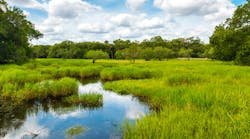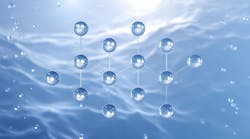The Water Environment Research Foundation (WERF) awarded four new contracts to further expand the capabilities of recovering valuable resources from wastewater in the treatment cycle. In the first project, Plasmids and Rare Earth Elements from Wastewater (NTRY8R15), Bucknell University will conduct a feasibility study on the recovery of plasmids and rare earth elements from wastewater and help define the standards and specifications needed for water resource recovery facilities (WRRFs) to produce these commodities.
The second project, High Quality Biosolids from Wastewater (NTRY7R15), will significantly expand biosolids use by defining the standards and specifications needed for WRRFs to cost-effectively produce and more successfully market high-quality, safe and stable biosolids. The research team led by Material Matters Inc., will develop a guidance tool for identifying and assessing markets for high-quality biosolids based on case studies of successful programs, and eventually test the guidance in the Washington, D.C. area. WERF is also partnering with a number of water utilities affiliated with the Water Services Association of Australia and Water New Zealand to further expand this research to include Australia and New Zealand.
The next study, Sustainable Struvite Control Using Residual Gas from Digester Gas Cleaning Process (NTRY9T15), was awarded to the Pima County Regional Wastewater Reclamation Department. The purpose of this research is to establish the feasibility of using residual gas (primarily CO2) following methane recovery to control struvite formation in WRRFs. The project team will also develop a protocol for implementation of similar struvite control methods at other WRRFs. The Metropolitan Water Reclamation District of Greater Chicago and CH2M are also collaborating with WERF on this research.
The final project awarded to Michigan Technological University has the potential to support municipalities seeking cost-effective and sustainable biosolids treatments for Class A designation. This project, High-Tech Analysis of Low-Tech Methods for Sustainable Class A Biosolids Production (NTRY11T15), will complement another ongoing WERF project evaluating Next Generation Tools for Assessing Death and Decay of Critical Wastewater Bacteria (U1R12) by measuring and standardizing methods to predict pathogen reduction. Additionally, WERF has partnered with equipment manufacturer Lystek Intl. Inc. to support this research.
WERF is organizing a larger fundraising effort with the hopes of engaging other partners to expand the scope of work for the last two projects.
Source: Water Environment Research Foundation


